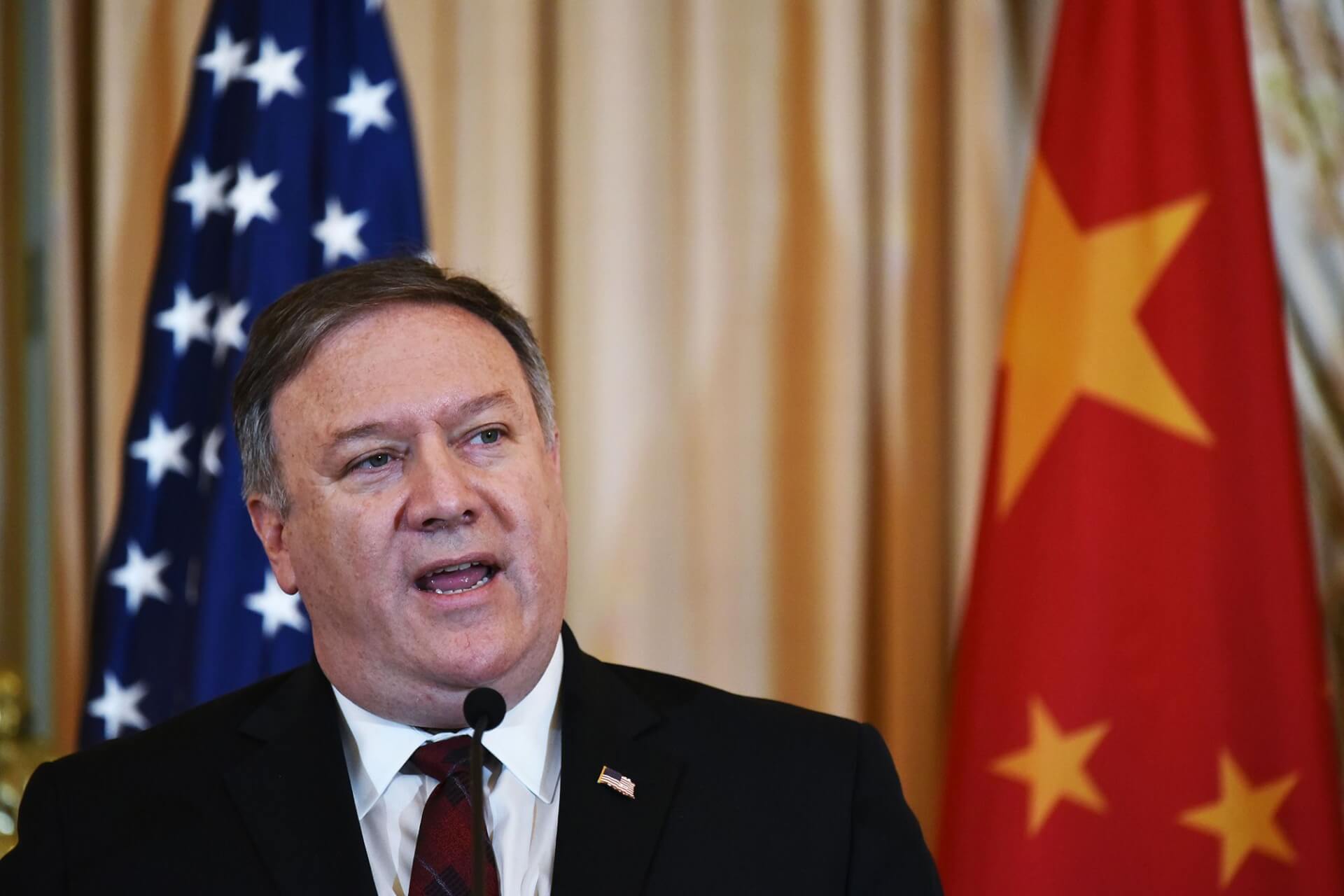In the latest escalation of tensions between Washington and Beijing, US Secretary of State Mike Pompeo formally rejected China’s maritime claims in the South China Sea (SCS) on Monday, deeming them illegal. Pompeo criticized China for treating the disputed waters as its “maritime empire” and asserted that Beijing’s “campaign of bullying” to control the seas was wrong.
Also read: US Aircraft Carriers Deployed to South China Sea During Chinese Military Drills
The US has long dismissed Beijing’s sweeping claims—nearly 1.3 million square miles—of the SCS, which hosts not only valuable oil and gas deposits, but also serves as a vital waterway for the world’s commerce. In recent years, China has been building up military bases on several islands in the region also claimed by the Philippines, Vietnam, Malaysia, Indonesia, Brunei, and self-governing Taiwan, and its aggressive posturing has resulted in significant international pushback. Pompeo, in his statement, posited that Beijing had “no legal grounds to unilaterally impose its will on the region”, and reaffirmed America’s commitment to its Southeast Asian allies. Japan echoed US’ concerns in its annual defense review on Tuesday, which stated that China’s naval activities are a matter of grave concern, and accused Beijing of attempting to alter the status quo in the East and South China Seas.
Beijing reacted strongly to Pompeo’s announcement, and accused the US of “distorting facts and international law,” and exaggerating the situation in the region “to sow discord between China and other littoral countries.” China also condemned Washington for “stirring up tension and inciting confrontation” in a region where it is not directly involved in the disputes.
China Maritime Coverage:
- South China Sea Standoff: Indonesia Deploys Fighter Jets and Warships to Thwart China
- Malaysia-China Standoff in South China Sea Leads to Five Nation Face-Off
- Philippines Temporarily Backtracks From Decision to End Military Agreement With US
- Japanese Local Authority Moves to Rename Disputed Islands, Irking China
- US House Foreign Affairs Committee Holds Hearing Titled “China’s Maritime Ambitions”
Relations between the two nations have worsened in recent months as the two nations continue to lock heads over China’s handling of the coronavirus outbreak, the new national security law in Hong Kong, the treatment of minorities in Xinjiang and security measures in Tibet. Last week, the United States imposed sanctions on senior officials of the Chinese Communist Party for their involvement in human rights abuses targeting Muslim minorities in Xinjiang. Both sides recently introduced tit-for-tat visa restrictions on officials involved in formulating policies for Tibet. The two countries are also sparring on nuclear arms control negotiations along with Russia.
China on Monday announced retaliatory sanctions against US officials including former presidential candidates Ted Cruz and Marco Rubio over Washington’s “interference” in China’s internal affairs in Xinjiang. The Chinese foreign ministry on Tuesday also said that the government will impose sanctions on aerospace and defense company Lockheed Martin for its involvement in the latest $620 million US arms sale to Chinese-claimed Taiwan.
Image Source: New York Post/Getty Images

